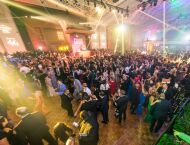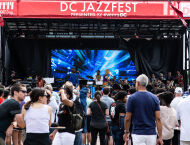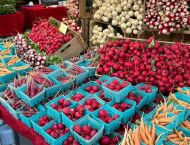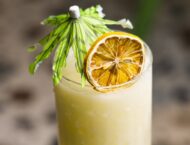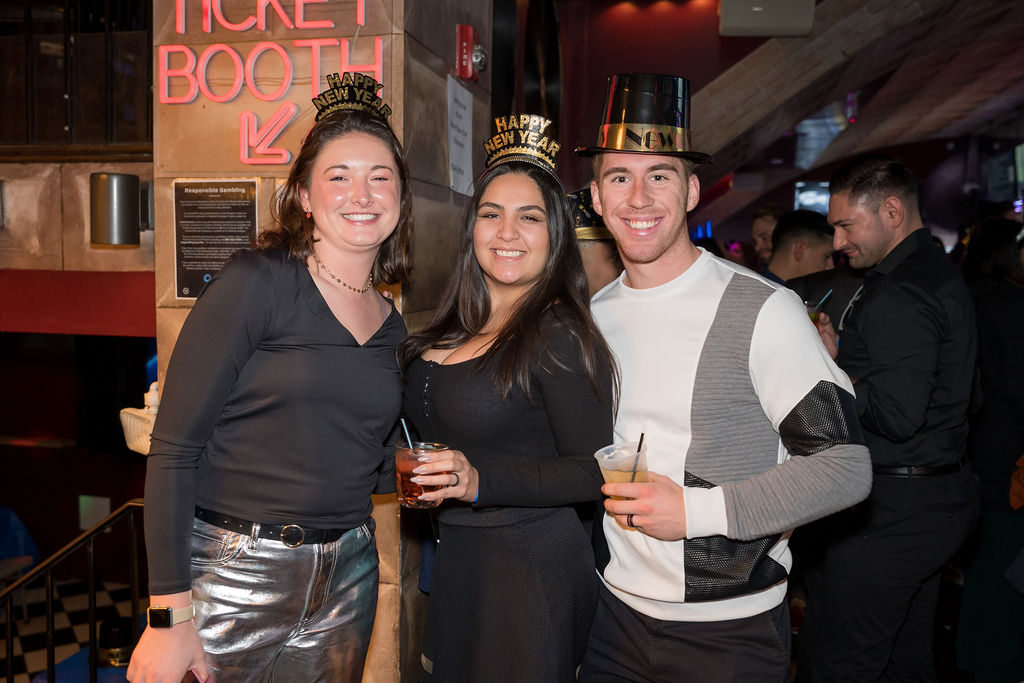Music
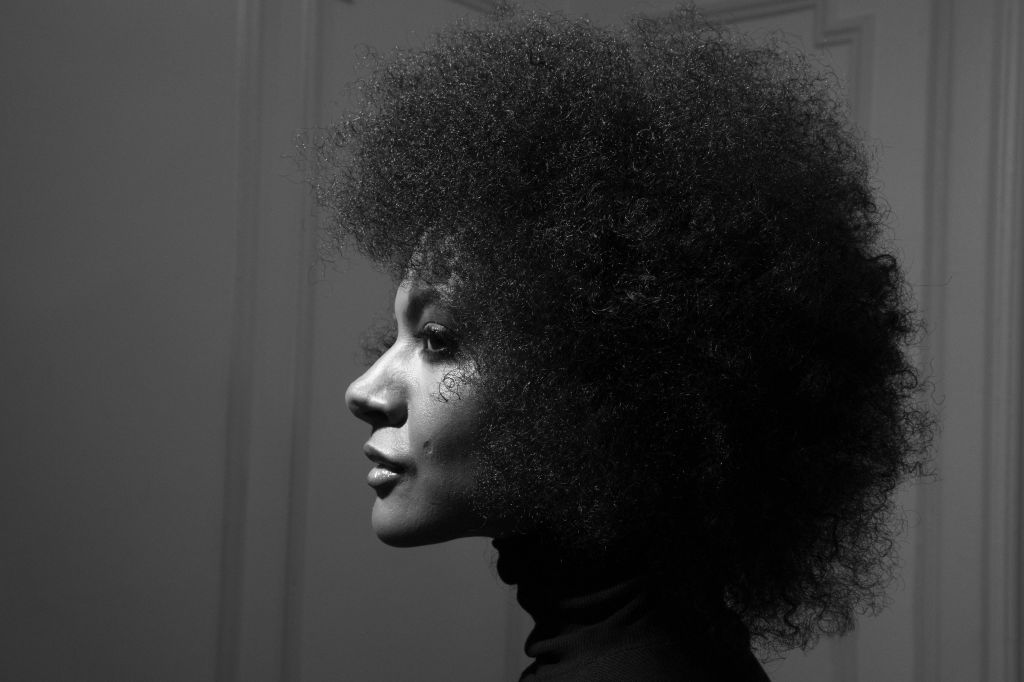 Allison Russell. Photo by Marc Baptiste.
Allison Russell. Photo by Marc Baptiste.
The Audacity to Dream: Allison Russell on Songs for The Voiceless, Genre-Resistance + Her Wolf Trap Debut
December 2, 2021 @ 12:00pm
It’s been a big year for the Wolf Trap Foundation for the Performing Arts, one of the stalwarts of the DMV’s arts scene. First, the public-private partnership is celebrating its 50th year and triumphant return following 2020. Second, 2021 marks The Barns’ 40th anniversary. In January 1982 the 200-year-old, nearly 400-seat venue embarked on its first season — and its influence has withstood the test of time. Wolf Trap continues to be one of the most popular draws for D.C. area concertgoers of all generations.
Each season, with more than 80 performances — spanning Americana, classical, indie, jazz, opera, pop rock and more — the venue hosts a rich variety of music and entertainment’s greatest legends and emerging talent. There are few places in the region where artists can offer such an intimate and unique experience. The combination of architecture, acoustics and purposeful programming creates an avenue for deeper connection with audiences.
And this year is no different, as The Barns continues to serve as a space for musicians breaking new creative ground. I had a chance to sit down with one such artist, Allison Russell, who will grace The Barns’ hallowed stage on March 6, 2022. Russell, whose debut album “Outside Child” dropped May 2021, hails from Nashville by way of Canada. She is one of those rising stars who embodies a sound that’s a labyrinth of deep pain, liberation, soul and Americana spirit. It’s the kind of diversity that maintains The Barns as one of the area’s crowning jewels.
The Resistance of Genres
From the jump, Allison Russell makes one thing clear: Her life’s work is about liberation, in every sense. As a starting point during interviews, I typically invite musicians to proclaim the elements of their sound and the vibe their lyrics and melodies evoke. This serves the purpose of tearing down the proverbial barrier between the uninitiated — those who are listening with virgin ears — and a musician eager to connect.
We are all artists in our own right and there’s nothing more frustrating than feeling powerless. Our artwork is a piece of us and sharing it with the world is one of the most vulnerable rituals we undertake. With this particular question, I extend an olive branch and enter into a pact.
I will tell your story, but only if it’s done with authenticity.
As I ask my question, the singer-songwriter, multi-instrumentalist, poet and activist lays her soul bare on the altar, refusing to feed the machine that might cage her identity into a single box.
“It’s essentially a melting pot of music,” Russell responds with the candor of an artist who has clearly contemplated the topic. “I’m drawing from a lot of different influences and inspirations.”
She continues, defiantly declaring she’s genre-resistant. The term is “deeply rooted in false racist constructs that have been problematic from the start,” she imparts, suggesting music resists genre at its very core.
Reflecting on this idea later, I recall all the songs reimagined by other artists before my sudden awakening: The idea of genre, like race itself, is a social construct.
Still, Russell knows for the purposes of this conversation her music must live somewhere on the spectrum, but with a caveat — it must always be on her terms. Her answer reveals the depth of her internal struggle and inclination to cultivate an inclusive perspective of music in order to fully honor it as a living, breathing entity.
“If I had to name one [genre], I would say Americana because I think that’s broad enough and refers to all of the diverse influences, including the foundational influences of the Black diaspora, indigenous influences and of course, European influences — all the waves of immigration.”
These “diasporas coming-together,” as she labels them, are what influence most modern artists — herself included. She reels off an expansive but by no means comprehensive list of conventional genres from which current and emerging musicians derive their unique sounds. Imitation is the greatest form of flattery and there’s no denying we are all the progeny of those who came before us.
I’m pleasantly awestruck by the professorial manner in which she dissects American history. Hungry for more, I ask her to expound on her comments. I want to talk about her music, but I’m also captivated and feeling especially enlightened.
Russell explains the idea of genre is a derivative of the introduction of recorded music. Prior to its invention, music was organically manifested in communities. It wasn’t until Ralph Peer, a pioneering businessman in country music, ushered in the era of recorded music that “genre” was born.
“[Peer] held the first recording sessions in Bristol, part of which is in Tennessee, part of which is in Virginia, and basically falsely segregated it along color lines because of his own white supremacist leanings,” Russell recounts.
Peer then went on to coin the term “race records” to describe music created by Black people and “hillbilly records” to categorize music created by white people. These original classifications have surely continued the practice of denoting anything that detours from mainstream as “underground” or subgenres.
“We’re still seeing bizarre categorizations based on color and a devaluing of foundational influences of BIPOC artists in idioms that are seen as white, such as country [or rock ‘n’ roll],” Russell notes. “There’s no Elvis without Sister Rosetta Tharpe — she’s the originator.”
I quickly came to see, as I have time and again in recent years, the things we bury deep in our history because they are too complex to face can undermine everything we’ve come to know about our reality.
The rawness of Russell’s history lesson is both triggering and freeing. It’s something I couldn’t have anticipated or excluded from this piece, else risk betraying the pact of authentic storytelling I made at the onset. It felt wrong to discuss her music before establishing a shared foundation.
Now I was ready to move forward, anxious to learn how this nuanced perspective influences her creativity and activism. Still, I had no clue how closely her personal journey as a woman, activist and artist parallels modern music’s awakening, where cross-genre collaboration (and artists) are the norm. Music today is so much more than notes, verses, choruses and bridges. It’s a battleground, which I learned in my short time with Russell.
The [Un]siloing of People + Things
Allison Russell describes her childhood as “difficult,” which only scratches the surface. The freedom and fluidity she now embraces as a musician, woman and intellectual sadly are eternally linked to her tumultuous and painful past.
“I grew up for several years in foster care,” Russell says. “And then I was adopted by a very white supremacist man from Southern Indiana who emigrated to Canada. He was abusive in all the ways: physically, sexually, psychologically. He was also very tyrannical about music — what he considered worthy and what we were allowed to listen to.”
Russell shares the memory of being severely chastised for listening to Loreena McKennitt, a Canadian Celtic artist. She was drawn to McKennitt from a proclivity she inherited from her Scottish grandmother’s musical tastes. Her grandmother knew a number of old record ballads and lullabies, which she heard echoed in McKennitt’s music.
“I really gravitated toward her folkloric songs and storytelling…[it’s] an oral tradition that’s been handed down for generations, often by women all over the globe.”
Even in her youth, Russell yearned to break free — to be the architect of her own life rather than falling victim to the notion that everything has its place. Instead, she knew then that worlds, cultures and identities collide again and again.
Then comes Russell’s deepest cut yet.
“I am very leery of segregation and questionable authority figures defining the lines around music and/or people,” Russell says. “I’m not interested in the siloing of people or the siloing of music. Every piece of music I love comes from intermingling. Every human on the planet comes from intermingling, as people discover if they do their DNA testing.”
I quickly sense that beneath all the pain expelling from her every word, there’s hope as well. She goes on to describe the need to better connect as a “human family,” if only we can circumvent the seemingly unsurpassable divides.
I also soon discover hope in the beautiful mess of her musical biography. Russell was only permitted to listen to Baroque music and Romantic composers, listening to McKennitt in secret. Embracing her nerdier side led her to find inspiration in the most unconventional of places.
“I would take poems from the Norton Anthology of English Literature, Volume One, which contained a lot of hidden canons, transcribed poems and songs. I would make up melodies, sit down and sing them.”
Then, at the age of nine, she found Tracy Chapman. It was one of the most profound moments of her life.
“I remember hearing the song ‘Behind the Wall’ and just weeping. I was part of a family that was behind the wall, where abuse was occurring in the home — and domestic violence. The fact that there were others and that this beautiful, queer, Black woman was singing truth so unflinchingly — it was just transformational to hear her.”
Russell also unfolds the fact that her adoptive father saw her (and anyone who looked like her) as three-fifths a human being. With this admission, I gained an understanding of what her music, at this stage in her life, must mean to her — which is to say everything.
Enter: The events surrounding her 2021 debut solo album “Outside Child.”
A Lasting Paradigm Shift
To trace the origins of “Outside Child,” you have to travel back to the summer of 2019 when Russell was on the road with Our Native Daughters: a collaborative effort that includes Rhiannon Giddens, Amythyst Kiah and Leyla McCalla.
The musical group was on tour for an album completed for Smithsonian. Traveling with this cohort of artists was the Smithsonian crew filming a documentary — along with six children between the members of Our Native Daughters. During this period — specifically between July and September 2019 — Russell wrote “Outside Child.” Then a chance opportunity arrived.
“I was very fortunate to receive a writing grant and a demogrant from the Canada Council for the Arts,” Russell recalls. “We were all home in Nashville for the [2019] Americana Music Fest. I just got together with some of my closest chosen community of artists and chosen family and we made ‘Outside Child’ in four days.”
She leaned on this family of individuals to layer in the album’s harmony vocals, all at her producer’s home. Even then, it took some time for the significance of this accomplishment to dawn on her.
“I was still in denial about the fact that I was making a solo record. It became clear once it was done that it was an entire body of work, a specific journey and in fact, an album.”
Then life happened. She hit the road again, this time with musical project Birds of Chicago. And when the pandemic hit, they flew home on March 11 from the West Coast and huddled together at a friend’s home in Madison, just outside of Nashville, for 18 months until the world started to open up again.
She describes with excruciating detail, her voice shaking, the infamous events of March 25, 2020, and the unexpected circumstances that manifested. For the first time in her life, she felt like people wanted to talk and listen to Black artists. They were returning calls and emails and eager to give individuals like Russell a platform.
“The consensus among all of my artist friends who are also Black was that suddenly all of these doors were opening that were brick walls before.”
Russell recounts the “come to Jesus” moment many people experienced at the height of the pandemic: a reckoning of their consciousness, wherein they came face to face with the destructive forces of bigotry and white supremacist attitudes that have limited the “goodness in the world.” The artist and her music must now exist in this unfamiliar world and uncharted territory.
“It’s been a very strange time, this opening of doors and possibilities,” she says. “For not just me, but a lot of other brilliant artists who are also women and also Black, who were underrepresented and not in demand before. We are having a moment that I hope becomes more than a moment — a lasting paradigm shift.”
Since this moment, Russell has released her 11-track solo album. With titles like “Montreal,” “All of the Women,” “The Runner” and “Little Rebirth,” it feels as if this is the culmination of a journey and the beginning of another. It’s a folksy, deep, reflective and at times emotionally cutting effort.
The final track, “Joyful Motherf**kers,” showcases the desire to come to terms with her darkest moments and her earlier tormentors. With lyrics like “Blessing be upon the thief of my childhood/ragged jackal/that loveless coward/oh my father, you were the thief of nothing/I’ll be a child in the garden 10,000 years and counting,” there’s a resilience that shines powerfully through.
It is a testament to who Russell is in her depths: a tireless liberator, eager to empower Black women and others who look like her to shine and no longer be voiceless or feel powerless.
“My guiding principles in life are harm reduction, antibigotry, pushing back and trying to break these endlessly repeating cycles of intergenerational trauma, abuse and violence.”
Russell describes recently curating a set at the Newport Folk Festival as one of the highlights of her career.
“It’s one thing to diversify who’s onstage. But even more important is to diversify who is in charge of curating and gatekeeping cultural events.”
Russell titled her curatorial turn as “Once and Future Sounds: Roots and Revolution.” The focus was on centering Black, BIPOC and queer women and continuing a musical tradition founded in part because of the brilliance of Sister Odetta Holmes and prominent activists like John Lewis, who remarked on folk music’s importance to the Civil Rights Movement.
On the surface, it’s just one door opening — but for one Black artist, the shift feels seismic. And perhaps the liberation to come will be as well.
Don’t miss Russell’s show at The Barns on March 6. Learn more about her at allisonrussellmusic.com and follow her on Instagram @allisonrussellmusic.
For more information about The Barns’ 2022 season, visit wolftrap.org. This holiday season, consider giving show tickets, gift cards or memberships as gifts to loved ones.
The Barns at Wolf Trap: 1635 Trap Rd. Vienna, VA; 703-255-1868; wolftrap.org // @wolf_trap
Coming Up at The Barns
Ana Popovic on February 4
anapopovic.com // @anapopovicmusic
Amy Helm on February 17
amyhelm.com // @amyhelmmusic
Nella on February 18
nellarojas.com // @nellarojasm
Bob Mould on March 2
bobmould.com // @bobmouldmusic
Tom Paxton & The Don Juans on April 13
tompaxton.com // thedonjuans.com
Meow Meow on April 20
meowmeowrevolution.com // @meowtopia
Paul Thorn on April 27
paulthorn.com // @paulthornmusic
The Quebe Sisters on May 7
quebesisters.com // @quebesisters
Enjoy this piece? Consider becoming a member for access to our premium digital content. Support local journalism and start your membership today.


